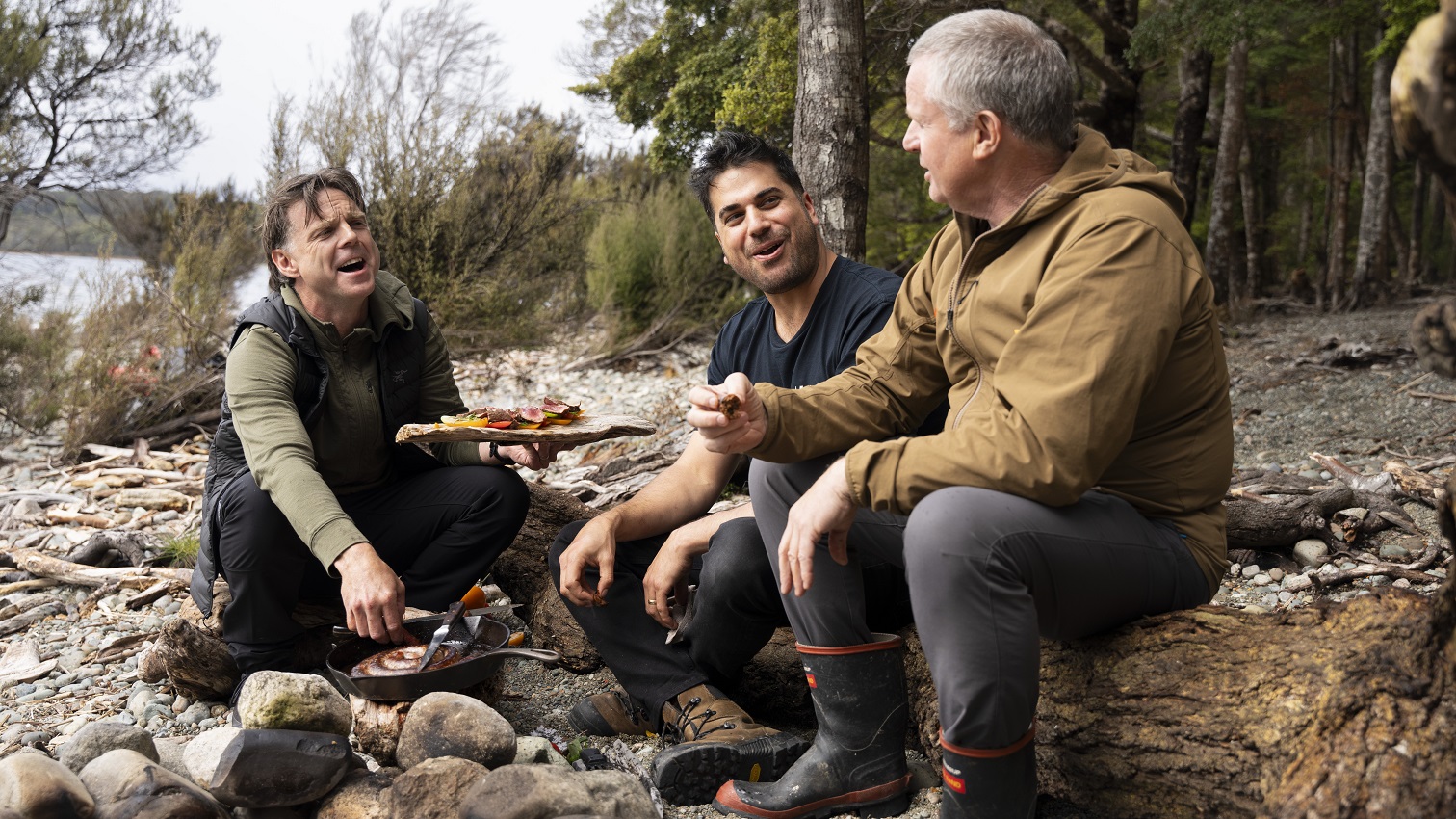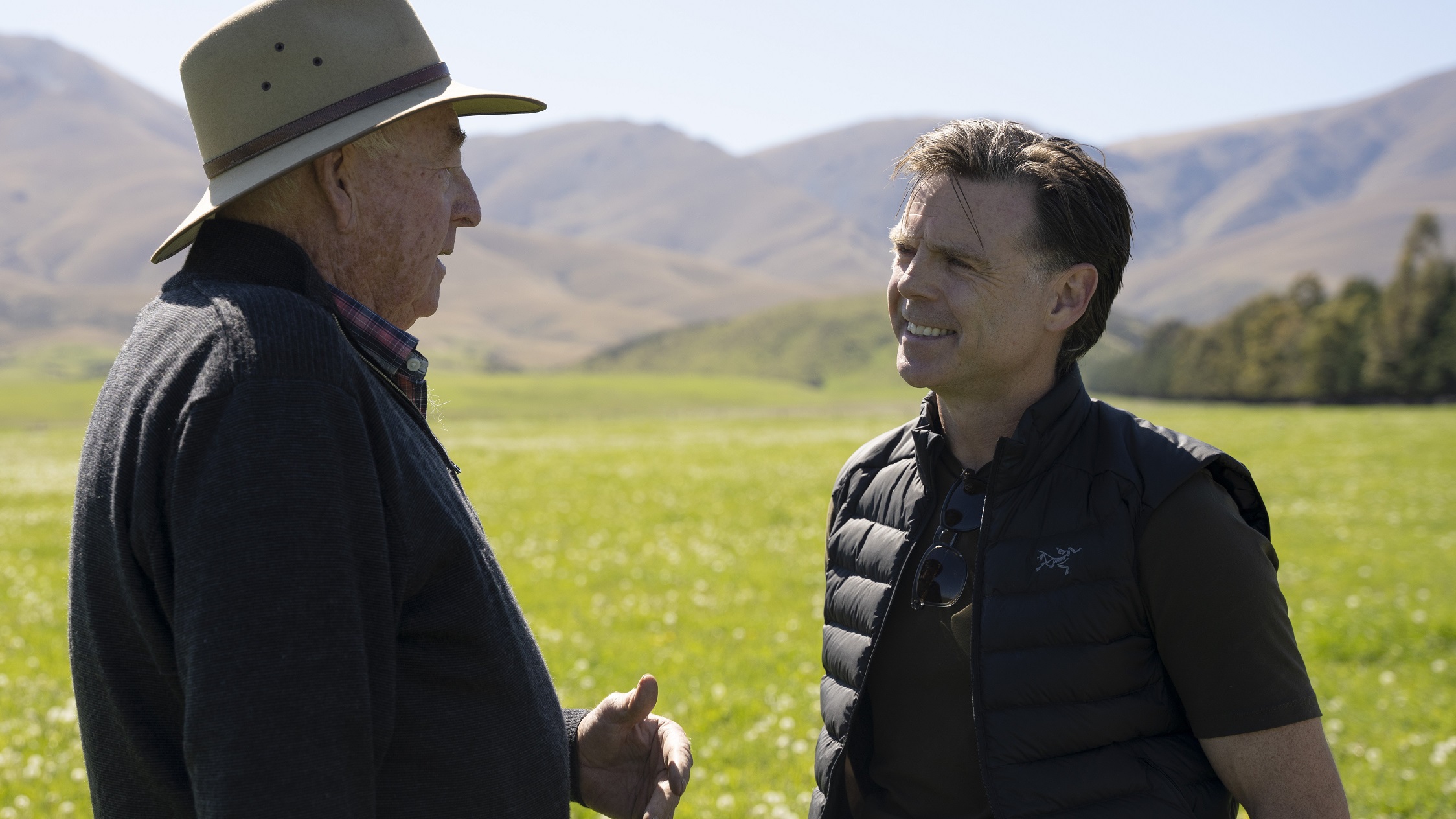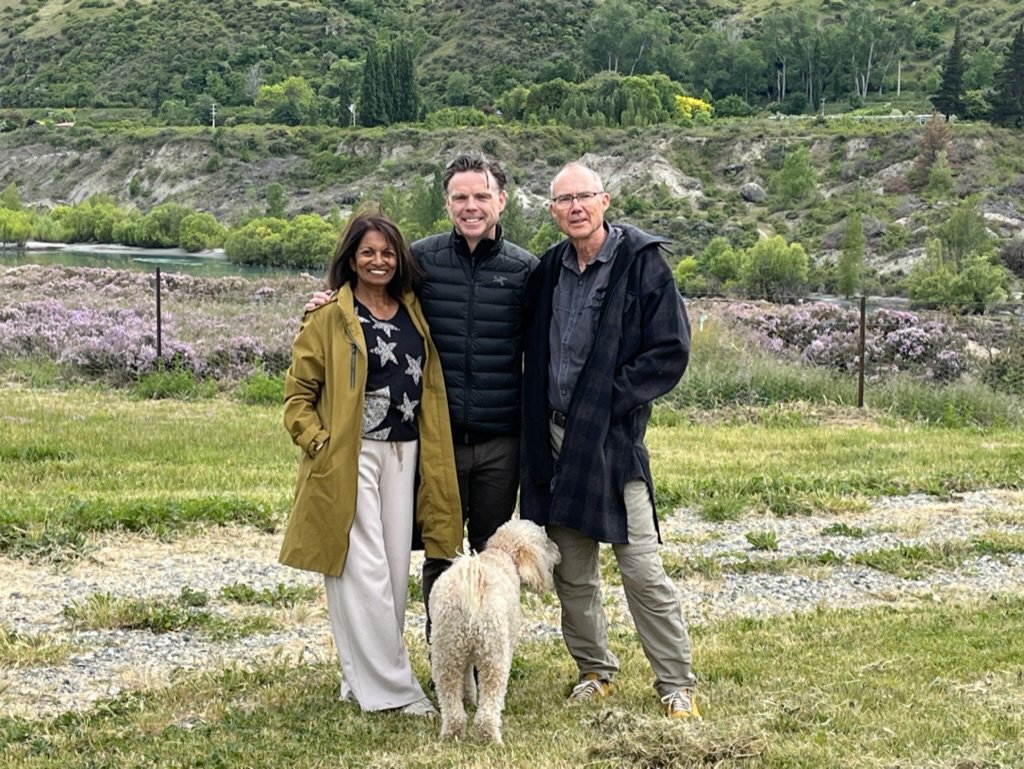
Sitting on the shores of Lake Wānaka, Auckland chefs Ben Bayly and Dariush Lolaiy cook up a piece of Fiordland Wapiti.
The meat has been dressed with a little olive oil and some salt and pepper and thrown in a pan over open flames.
For Lolaiy, co-owner of Auckland restaurant Cazador and a renown wild food chef, it does not get more perfect than that.
"It’s cooking the way I’m most comfortable with, over an open fire in the bush and to share that with him, right there, was an awesome experience."
The simplicity of it all was also a revelation for Bayly, who was there to tell the story of Lolaiy’s latest endeavour in the next series of his television programme A New Zealand Food Story with Ben Bayly.
Lolaiy’s latest project is to help rescue Wapiti (a type of elk named by Native Americans) which would otherwise go to waste as part of deer management in Fiordland National Park and provide a way for the meat to be used as a food source.
It began three years ago when Lolaiy, whose restaurant has always had venison on the menu, was approached by a longtime supplier to see if he would like some Wapiti (which were introduced to New Zealand from the United States in 1905). When he found out there was a potential source of hundreds of animals, he got on the phone.
He brought together a group of like-minded people — including chefs Tom Hishon (Orphans Kitchen, Daily Bread and Kingi) and Nick Loosley (charity Everybody Eats, The Gables and Hone’s Garden) with wildfood supplier Scott Mcneil (Awatoru Wildfood) and Donald Shepherd, co-founder of food waste business Citizen — to form "WithWild", a company selling Wapiti to restaurants and soon to the public in Auckland.

An important part of the business is that part of the proceeds go back into the conservation efforts of the Fiordland Wapiti Foundation, which manages the Wapiti herd in Fiordland on behalf of the Department of Conservation. It enables a low-density herd to remain for hunting purposes through culling, but also helps protect the birdlife and habitat of the area with pest trapping and wildlife monitoring.
However, due to the expense of removing the Wapiti, after culling the carcasses were left on the hill, something that did not sit well with the foundation or hunters.
For Lolaiy and his team, the potential to come up with a sustainable solution to the problem was too good to pass up, even if the logistics of retrieving the Wapiti from such a remote area was a challenge.
"We primarily produce Wapiti meat and it sells itself. Anyone who tries it are blown away. I can’t think of another protein that is as unadulterated as this — it’s the most New Zealand meat there is."
Also important was the chance to be actively involved in conservation of one of New Zealand’s most important national parks. Results from the conservation work since they joined with the foundation have been really positive, he says.
"It’s amazing to be able ... to invest back into the New Zealand food industry in a direct way which supports the growers, whether meat or vegetables, the people who are preserving New Zealand’s environment. In a little way it’s a more direct line to conservation for us."
Bayly, who owns top Auckland restaurant Ahi and Arrowtown’s Aosta and Little Aosta, is a huge fan of deer in any form and often cooks it at home for his family.
"It’s one of the healthiest food sources a human can eat."

"The juxtaposition is phenomenal, geographically and weather wise, and as a result it produces some of the best food in New Zealand and certainly the best vino. I didn’t realise that until we took over Aosta."
He uses Provenance lamb in his restaurants and is always ready to help out suppliers looking to reduce waste and try new products.
"We like to do things others are not doing."
The new series has really highlighted to him how difficult growers of all varieties of food are finding it in the current environment and made him even more determined to tell their stories well as he is a big believer that if regional New Zealand told its food story better it could command higher prices for its products.
"What’s made in Central Otago excites me. It’s so diverse — everyday is different."
His show has been aired in Australia, France, Norway and the Middle East and is also available on international Air New Zealand flights, United Airlines, Lufthansa and Air Canada providing international coverage for the producers.
"It gives a world stage to producers and heroes the best ingredients. If we tell our story better, if we’re loud and proud then we can command a better rate for it."
TO SEE:
A New Zealand Food Story with Ben Bayly, TVNZ 1, 7pm, February 24, concluding on Saturday, March 30













